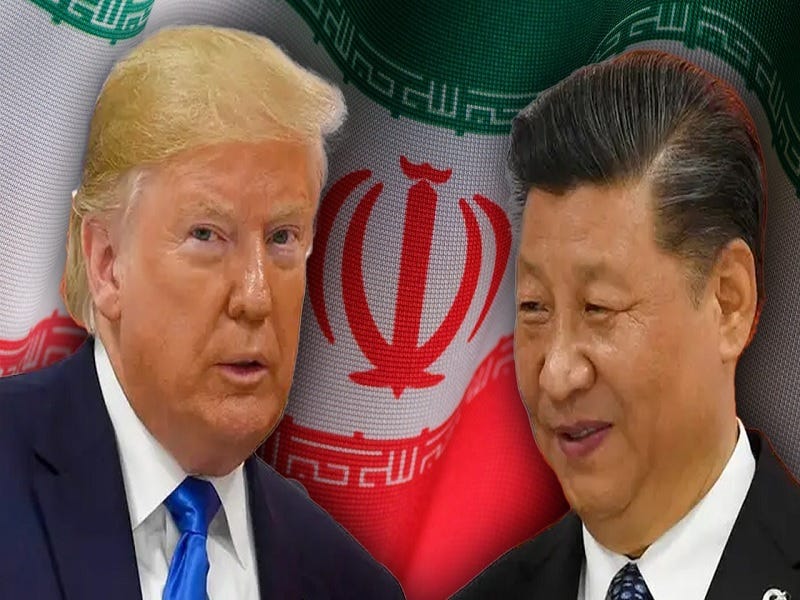
American AI Should Be Quintessentially American
Authored by Richard Porter via RealClearPolitics,
The United States and Europe have long shared a common political culture rooted in the ideals of the Enlightenment. These include the primacy of personal freedom; individual autonomy; the inherent equal moral standing of human beings; acceptance of diverse viewpoints; and the use of logic, intellectual rigor, and critical thinking to understand the world. The Western alliance’s raison d’etre is protecting those ideals – and the societies built on the foundation of these ideals – from authoritarian regimes.

J.D. Vance restated our commitment to these ideals in two powerful speeches last week – to a Paris conference on artificial intelligence and then to the Munich Security Conference. America’s newly installed vice president directly challenged European political elites who, fearing freedom, are drifting away from these ideals as they seek to squelch popular political movements while becoming autocratic themselves. For some reason, leaders in the audience were visibly stunned. They shouldn’t have been.
Vance’s rhetorical fluency was his ticket into politics. Both his recent speeches were deftly crafted and temperately delivered. They accurately reflected MAGA’s disgust over reflexive regulation by self-loathing elites who limit freedom in the name of “democracy,” and who seek to cover up government incompetence and dishonesty by deconstructing Western culture as somehow inherently racist.
In Munich, the vice president made it clear that our shared Enlightenment ideals are central to the Trump administration’s security policy and our ongoing commitment to the alliance. In Paris, Vance proclaimed that less government interference is essential to winning the AI race, and that AI should remain free from the ceaseless demands of woke culture:
Number one, this administration will ensure that American AI technology continues to be the gold standard worldwide, and we are the partner of choice for others, foreign countries, and certainly businesses as they expand their own use of AI. Number two, we believe that excessive regulation of the AI sector could kill a transformative industry just as it’s taking off, and we’ll make every effort to encourage pro-growth AI policies. And I like to see that deregulatory flavor making its way into a lot of the conversations at this conference. Number three, we feel very strongly that AI must remain free from ideological bias and that American AI will not be co-opted into a tool for authoritarian censorship.
This third point is not aimed at Europe alone, or China, for that matter. The context here is that AI is being created by human beings who have political perspectives. AI will always have an ideology or ethic. So, let’s talk directly about the perspective that will make AI as useful (and humane) as possible.
Extrapolating on Vance’s point, U.S. companies and software engineers could adopt this refrain: “Embracing the goals of the Enlightenment, American AI must avoid bias and authoritarian censorship. It must pay homage to the primacy of personal freedom, individual autonomy, and the inherent equal moral standing of human beings. It must also celebrate diverse viewpoints while also elevating the use of logic, intellectual rigor, and critical thinking to understand the world.”
Because Western elites now doubt this ideology, the Trump administration should explicitly endorse these ideals in its AI policy as emphatically as it does in its security policy.
American-developed AI should be humane, pragmatic, logical, and possess common sense, so that AI actually advances and spreads knowledge instead of being a tool for propagating dogma, stifling intellectual curiosity, or advancing creeping European-style authoritarianism.
Google’s generative AI tool, which now provides the “top” response for most queries, shows how urgently we need to reframe the AI already in the marketplace. While earlier versions of Google’s AI product were mocked for producing ahistorical imagery, the current version is still infused with a left-wing, anti-analytical, anti-American perspective. This matters because Google’s AI is now the primary source of information for the entire world.
For example, consider how Google’s generative AI answers these queries.
Is the U.S. structurally racist?
Yes, the United States is structurally racist. Structural racism is a system of policies, practices, and norms that create and maintain white supremacy. It affects the health, education, employment, and economic status of people of color and others marginalized in society.
Does DEI make companies more profitable?
According to research from McKinsey and other studies, yes, implementing Diversity, Equity, and Inclusion (DEI) practices can generally make companies more profitable by fostering a wider talent pool, boosting innovation, and leading to better decision-making within diverse teams, ultimately improving financial performance; companies with higher diversity in their leadership tend to outperform their peers financially.
(One of the citations actually states that the results of the McKinsey studies could not be replicated, a fact the AI ignores.)
Is healthcare ever free?
Yes, healthcare is free for everyone in some countries, but not in the United States.
(Obviously healthcare is never free – someone needs to pay the doctors and build the hospitals.)
Of course, today’s AI will be seen as primitive in just a few years, but it should be worrisome not just to the Trump administration, but to all free-thinking Americans that AI’s first draft was written by left-wing activists. AI must instead be designed to question, consider, and analyze different alternatives and express uncertainty when appropriate; AI won’t be useful, and could even be dangerous, unless it’s programmed to actually be thoughtful.
Also, American AI should be quintessentially American, reflecting the best of the culture that produced our exceptional nation. We will ultimately fail in our common cause of making America great again if U.S. history is written by its haters, its economics are explained by Marxists, and “the science” is allowed to replace the scientific method.
Richard Porter is a lawyer in Chicago and an advisor to the Alfa Institute, a policy and idea accelerator founded by former Speaker Kevin McCarthy.
Tyler Durden
Wed, 02/19/2025 – 17:10


















